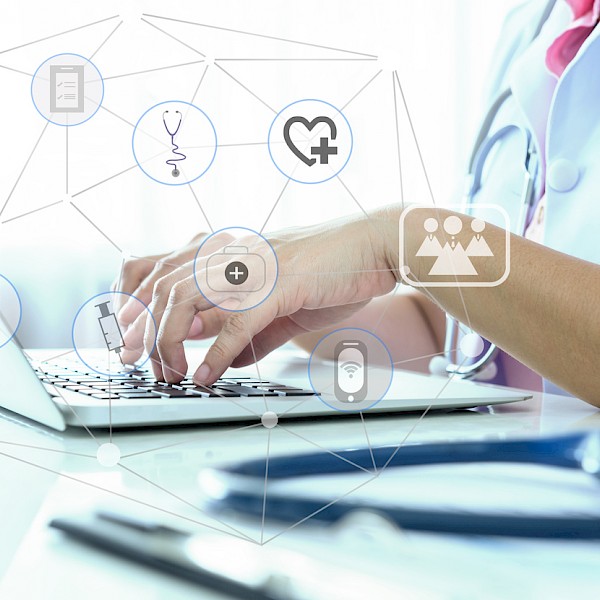The AI and IoT revolution changing the healthcare sector



Technological innovation is transforming healthcare at every level, today from the application of AI to medical diagnosis, through to using computer vision to evaluate X-rays and CAT scans.
“Reinforcement learning is now making the shift from research to commercial applications and enabling an exciting new class of use cases,” says David Talby, CTO of Pacific AI, a consulting firm that specialises in AI, big data and data science. “This marriage of machine learning and control theory is long overdue and opens the door to systems that better learn on their own and deal with changing environments.”
The growth of large datasets and algorithms used to map and forecast disease and health issues across communities is seeing a rise in demand for Big Data specialists who can help healthcare providers better allocate their resources to meet the needs of the population. But also Security experts who need to ensure a secure digital environment to protect the vast amount of digital data being collected.


Admin and logistics is being transformed with healthcare suppliers investing in self-service interfaces and Robot Process Automation (RPA) to streamline and create a more cost effective front end service. From AI Architects to PMs, the human resources required to achieve these goals is pushing demand up for highly skilled tech professionals.
If a patient can receive a diagnosis from an AI interface, meanwhile – or if they can simply talk to a nurse via videochat – then it saves them from visiting a medical facility, cutting down the need for travel and inconvenience and, more importantly, removing the risk of picking up an infection while at the facility. In the case of chronic disease management, where an individual might need to visit a care provider on a daily basis for testing and monitoring, this can make an enormous difference.
There is still a great deal of work to do when it comes to fine-tuning the technology. “My team does a lot of work in natural language processing, and most of the models and algorithms we deliver are still rightfully considered open problems in academia,” says David. “It’s the same in many areas of what’s called today ‘AI’ – expansibility is an open problem. Bias is an open problem. Automated feature or network engineering is an open problem. There are no standard frameworks or best practices for deploying, debugging, reproducing or operating models. Consider where machine learning techniques and tools are today – compared to other areas of computer science like compilers or relational databases which have been incrementally improving for half a century – to see just how much innovation is still ahead of us.”


“Looking back at the past 25 years, we have been through noticeable breakthroughs – where something new ‘becomes possible’ [in different sectors] almost every year,” says David. “With the amount of talent and effort in this space, it’ll keep happening.”
For the tech industry the demand for skilled, specialist professionals grows and grows. From Big Data Scientists to Security Analysts, Developers through to Project Managers, there is a need across the board on skilled professionals.

Empiric is a multi-award winning business and one of the fastest growing technology and transformation recruitment agency's specialising in data, digital, cloud and security. We supply technology and change recruitment services to businesses looking for both contract and permanent professionals.

Read more (pdf download)
Empiric are committed to changing the gender and diversity imbalance within the technology sector. In addition to Next Tech Girls we proactively target skilled professionals from minority groups which in turn can help you meet your own diversity commitments. Our active investment within the tech community allows us to engage with specific talent pools and deliver a short list of relevant and diverse candidates.
For more information contact
02036757777
To view our latest job opportunities click here.